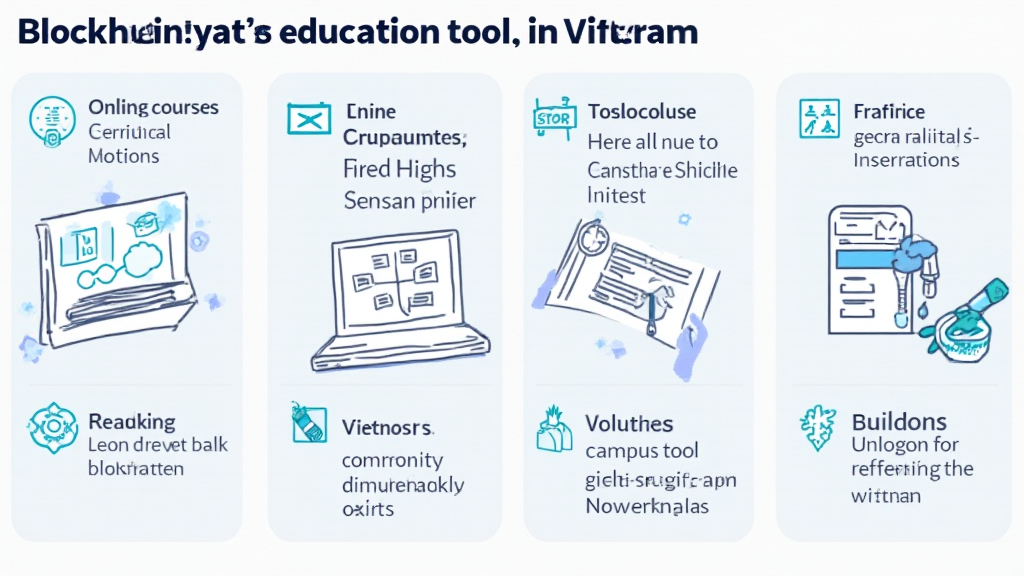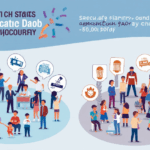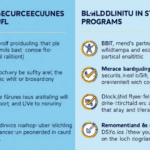Introduction
As the digital landscape evolves, so does the importance of knowledge in emerging technologies. With blockchain technology projected to reach a market size of $163.24 billion by 2029, the demand for comprehensive education tools is at an all-time high. Vietnam, a burgeoning hub for crypto enthusiasts, faces a significant challenge: How can it effectively equip its population with the necessary knowledge to navigate the complexities of blockchain?
In 2024, over $4.1 billion was lost to DeFi hacks alone, emphasizing the critical need for secure and educated participants in the blockchain ecosystem. The integration of educational tools tailored for the Vietnamese market is essential for fostering a competent workforce capable of handling the demand for blockchain expertise.
Current Trends in Vietnam’s Blockchain Education
Vietnam has seen substantial growth in blockchain-related activities, with user growth rates soaring by approximately 60% year-on-year. The country’s startup ecosystem is ripe for innovation, and the appetite for blockchain education is increasing. This surge in interest highlights the need for accessible and practical educational resources that cater to both beginners and advanced users.

Key Blockchain Education Resources
- Online Courses: Platforms like Coursera and Udacity are now offering localized courses in Vietnamese that cover fundamental blockchain concepts, smart contracts, and decentralized finance (DeFi).
- Workshops and Bootcamps: Organizations in Vietnam are hosting intensive workshops that provide hands-on experience, allowing participants to work on real blockchain projects.
- Local Community Groups: Platforms like Meetup are crucial for fostering community engagement, where enthusiasts gather to share knowledge and develop skills.
- Educational Organizations: Institutions such as Hanoi University and Ho Chi Minh University have incorporated blockchain into their curriculums, providing students with a solid foundation in blockchain technology.
Integrating Vietnamese Cultural Context in Blockchain Education
When developing educational tools for the Vietnamese audience, it is essential to incorporate local cultural references and languages. Translations for key terms such as “tiêu chuẩn an ninh blockchain” (blockchain security standards) should be used to ensure clarity and relevance. This also includes adapting case studies to reflect local market behaviors, making complex concepts relatable.
Case Studies of Vietnamese Success in Blockchain
Vietnam boasts several successful blockchain projects that can serve as case studies for learners. For instance, TomoChain has created a scalable blockchain solution, significantly impacting local e-commerce by facilitating secure transactions. Similarly, platforms like KardiaChain focus on interoperability, making it easier for industries like healthcare and real estate to adopt blockchain.
Exploring the Future: Projected Developments in Blockchain Education
As we approach 2025, the potential for blockchain technology will only grow, making ongoing education imperative. Predictions suggest that a substantial percentage of the Vietnamese workforce will need familiarity with blockchain for various job roles, from finance to supply chain management.
Emerging Tools in Blockchain Education
- Virtual Reality (VR): There’s a potential for VR simulations to teach blockchain mechanics in a gamified format, making the learning process more engaging.
- Mobile Applications: With increased smartphone penetration in Vietnam, educational apps tailored for blockchain concepts can provide on-the-go learning opportunities.
- Blockchain Simulators: These tools allow users to practice deploying smart contracts without real financial risks, crucial for understanding system vulnerabilities.
Building Trust and Credibility in Blockchain Education
To establish trust in educational resources, reputable sources and verified data should be prioritized. For instance, according to Chainalysis, Vietnam ranks among the top countries for cryptocurrency adoption, making it crucial for educational institutions to uphold high standards.
Furthermore, collaborating with industry experts and ensuring transparency in course material will bolster the credibility of blockchain education tools.
Conclusion
As highlighted throughout this article, the landscape of blockchain education in Vietnam is ripe for development. By integrating local language resources, building community engagement, and leveraging technological advancements, Vietnam can position itself as a leader in blockchain education. The tools and strategies discussed are critical in ensuring that the next generation of blockchain professionals is prepared to handle the issues posed by this rapidly evolving technology.
To stay updated on blockchain education tools and trends in Vietnam, continue to explore resources at officialcryptonews.





